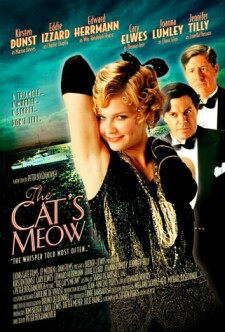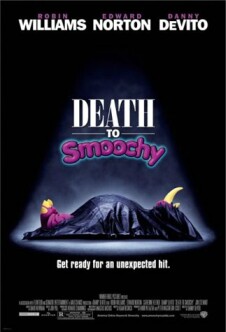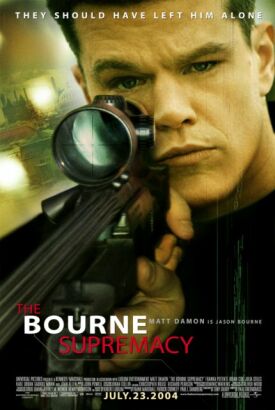Chacun Cherche Son Chat (When the Cat’s Away. . .)
When the Cat’s Away (not a very adequate translation of the French Chacun Cherche Son Chat or “Everyone’s looking for his cat”), by Cédric Klapisch, is a charmingly old-fashioned kind of film, in spite of its depiction of very contemporary social realities. It offers a marvelously undimmed romanticism about Paris, and about the glamour of its less glamorous side and about, well, romance itself.
There is not really any plot. Chloe (Garance Clavel), a lowly young make-up specialist in the salons of the fashion industry, goes on holiday for a week, leaving her cat, Gris-gris, with an old neighbor called Madame Renee (Renee Le Calm). The old woman already has several cats and will hardly notice one more. She tells Chloe that “men have let me down often; animals never,” but the younger woman is still hoping for a human lover. Her long-awaited trip to the seaside, however, is represented by about three seconds of film showing her up to her neck in water and squinting painfully against the sun. Cut to her return and the sad news from Madame Renee that Gris-gris has gone missing. The rest of the film consists of Chloe’s search for the cat with the help of her gay roommate, Michel (Oliver Py), a mentally retarded Algerian immigrant, Djamel (Zinedine Soualem) and, seemingly, every old lady in the neighborhood.
Along the way we get a sense of Chloe’s loneliness, and her search for her cat becomes a metaphor for her search for love even as it supplies her with all kinds of social connections undreamed of before — especially among those for whom cats are still the traditional signifiers of spinsterhood. Indeed, loneliness is the real theme of the film, and Klapisch, though he studied for two years at NYU film school, is very French in his vignettes of loneliness among all ages and races and sexes and classes in the heterogeneous Bastille neighborhood of Paris. Anywhere else, such stuff would be serious and oppressive, but here it comes across with a lightheartedness almost worthy of Truffaut. The old woman who gets lost in the street after her husband dies, like the one who keeps her husband’s ashes in an urn in the kitchen (“After 32 years, why should we split up now?” she asks), is both funny and pathetic in exactly Truffaut’s manner.
As is poor plain Chloe, who devotes her life to enhancing the beauty of other women and envying them their attractiveness. During the time that Gris-gris is missing, everything else seems to go wrong for her too — even as her circle of friends is rapidly increasing. After being told by a friend that she doesn’t try hard enough to attract men, she tries, shyly and not very successfully, to dress sexy, but the young man she is interested in is scared off by a pest in the bar, and she is then pawed by a bunch of drunks in a car. The bartender, Blanche, comes to her rescue, but then turns out to be lesbian and herself makes a pass at her. Her gay roommate brings home a boyfriend to share their apartment, and the guy in the bar she was interested in turns out to be a creep who is constantly practising the drums and being yelled at by Madame Renee.
And, of course, her cat is still missing. Djamel is doggedly faithful in helping her look for this animal, which she found on a visit to the country when it fell off a roof. Djamel, too, dates his mental retardation from a fall off a roof, and he again falls off a roof trying to retrieve a cat that turns out not to be hers. We laugh in spite of ourselves at this poor stray, ridiculed even by his friends, who obviously is smitten with Chloe, even though she does not want him. When at the end of the film there is at last the hint of romance to come for her, turning up like the cat where she least expected it, he is left to observe mournfully that life is not fair.
It is a good example of Klapisch’s Gallic flair for the funny-pathetic, as also is the scene in which Chloe and her friend Flo discuss Flo’s mother’s relationship with a man she met in the personal ads as they are working on one of the models they are employed to make up. They are both repelled by the thought of meeting men that way, but then the model gets up, offended, and tells them she met her boyfriend through a personal ad. Both the girls are thunderstruck. “You? But you’re pretty!”
“What difference does that make?” she asks angrily.
What indeed! The sense of a community of loneliness is wonderfully paradoxical and so is well-represented by the funny-sad spirit in which Klapisch treats it, as is Paris itself, which is serenaded by the old ladies at the end of the picture. We are left with a sort of grunge version of Les Enfants du Paradis, but with enough of the charm intact that it is well worth seeing.
Discover more from James Bowman
Subscribe to get the latest posts to your email.








